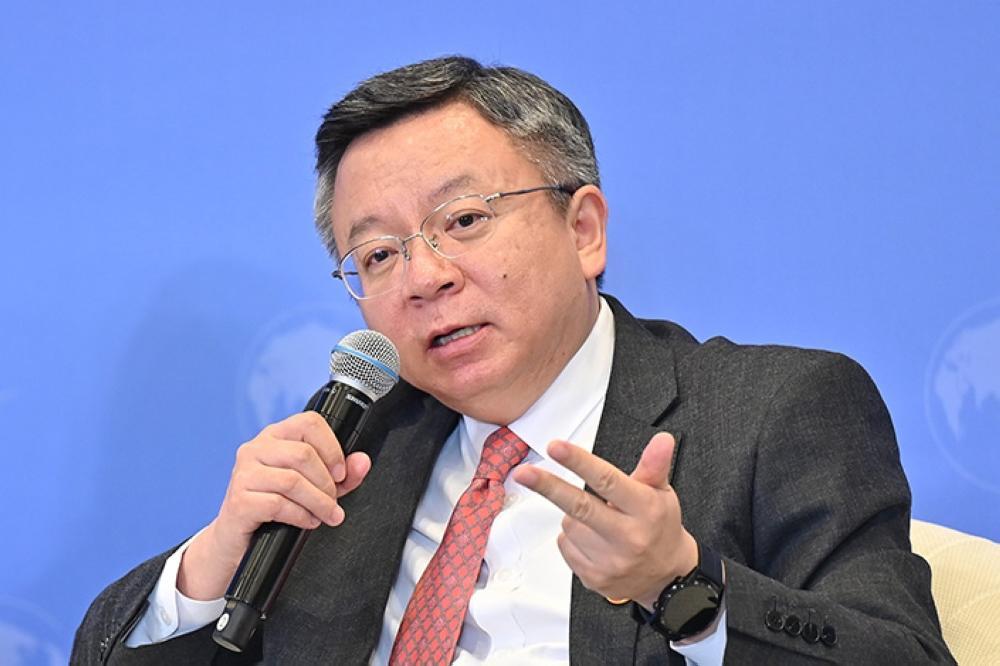Africa-Press – Rwanda. Continued fiscal consolidation, supported by stronger domestic revenue mobilisation and spending efficiency, is essential to safeguard Rwanda’s macroeconomic stability and debt sustainability, the International Monetary Fund (IMF) Executive Board has said.
It made the observation at the conclusion of the fifth review under the Policy Coordination Instrument (PCI), on June 4.
The Executive Board concluded that Rwanda’s economic growth remains among the strongest in sub-Saharan Africa, despite rising fiscal and external pressures linked to large investment projects and reduced concessional financing.
Rwanda’s economy grew by 8.9 per cent in 2024, higher than the earlier projected 8.3 per cent, driven by a rebound in agriculture and continued strength in the services and construction sectors.
Inflation remained within the National Bank of Rwanda (NBR)’s 2–8 per cent target band, reflecting tight monetary policy and improved domestic food output.
The IMF indicated that Rwanda has met all quantitative targets, and that most reform commitments were implemented, including in state-owned enterprises (SOE) governance, monetary statistics, and digital public financial management.
However, the the IMF said the approval of the comprehensive tax policy package and the rollout of the Global Master Repurchase Agreement (GMRA) were implemented with a delay.
GMRA is a standard legal agreement used for repurchase transactions (repos) – also called buybacks – of securities globally.
New tax reforms
Rwanda’s tax reforms – whose relevant laws were published in the Official Gazette on May 29 after approval by Parliament – include a 15 per cent excise duty cosmetic and beauty products, and an 18 per cent value-added (VAT) on mobile telephones and ICT equipment in general.
They also include a hike in taxes on gambling revenue, introduction of a 3 per cent tourism tax on accommodation, and VAT and excise duty on hybrid vehicles.
As part of the new reforms, the government hiked excise duty on cigarettes from the current Rwf130 to Rwf230 per pack – which add to the already existing 36 per cent of retail price – and 5-percentage point increase in beer excise duty, from 60 per cent to 65 per cent of factory price.
Bo Li, IMF Deputy Managing Director, and Acting Chair, said that the macroeconomic environment has become more complex due to a need to implement difficult reforms against the background of worsening external conditions, including aid withdrawals and regional tensions.
“Sustaining fiscal consolidation remains vital to preserving macroeconomic stability and ensuring debt sustainability. The recently adopted tax reform package is a welcome step toward broadening the tax base and enhancing equity and efficiency,” he observed at the conclusion of the Executive Board’s discussion.
“Continued expenditure rationalisation and close monitoring of fiscal risks, particularly from SOEs and the ambitious priority investment project, are essential. The fiscal implications of pension reform and the financing needs for the priority infrastructure project must be carefully managed to maintain fiscal discipline,” he added.
While monetary and financial policies remain focused on stability, he said, vigilance is warranted.
“Inflationary pressures from fiscal loosening and tax policy changes may necessitate a tightening of the policy stance. Greater exchange rate flexibility is crucial to support external adjustment and safeguard reserve adequacy,” he stated.
On May 8, the Minister of Finance and Economic Planning, Yusuf Murangwa, said that Rwanda’s growth momentum remains strong, despite a challenging environment caused by climate change effects, global inflation, geopolitical tensions, trade wars, among other factors.
He was presenting the budget framework paper including the proposed more than Rwf7 trillion national budget for the 2025/26 fiscal year to Parliament.
He said the government remained committed to maintaining macroeconomic stability and fostering inclusive growth by investing in key areas such as agriculture, manufacturing, healthcare, social protection, and education.
Addressing fiscal pressures
Rwanda’s current account deficit – the level at which the country’s goods and service imports exceeds its exports – widened in 2024 due to strong consumer and capital goods imports, but reserves remained adequate at 4.7 months of imports as of end-year.
The IMF expects that the fiscal position will be under pressure from the large infrastructure investment in the New Kigali International Airport (located in Bugesera) and the expansion of RwandAir, as well as the recent pension reform.
Public debt is projected to peak in 2025/26 at 78.7 per cent of GDP (as of December 2024), with the PCI debt anchor target of 65 per cent now expected to be achieved by 2033.
Accelerating domestic revenue mobilisation and maintaining a credible fiscal consolidation path are crucial to restoring policy space and ensuring long-term fiscal sustainability, the IMF observed.
Source: The New Times
For More News And Analysis About Rwanda Follow Africa-Press






